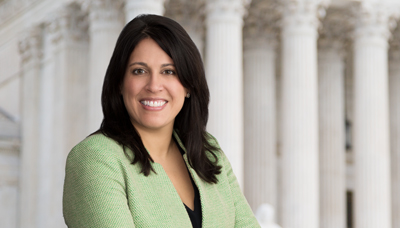For decades, employees who were not in a position to be covered by Director’s & Officer’s insurance have relied upon employment agreements or the simple generosity of their employer to pay legal fees associated with government investigations and prosecutions. Moreover, in an age where the Department of Justice’s jurisdictional reach seems to be growing by the minute, companies facing long-lasting and wide-reaching government investigations many times rely upon one single law firm to represent multiple employees who may be interviewed by the government or serve as a grand jury witness. The benefits to the company are obvious and numerous – the company does not have to pay an additional set of lawyers to familiarize themselves with the facts of the investigation and it is able to protect its employee who may only have a tangential relation to the investigation or simply act as a custodian of documents. Barring ethical rules relating to conflicts of interest, these arrangements have been standard in white collar law for decades. And while some government prosecutors have attempted to remove uncooperative attorneys using the threat of a conflict, this tactic has been more or less ineffective absent a showing of an actual conflict to the court. A recent decision by Judge Berman threatens to upset that status quo. In 1999, then Deputy Attorney General Holder advised prosecutors that they could consider a corporation’s advancement of legal fees to its employees as a sign that the corporation was not willing to cooperate with the government’s investigation. Against this backdrop, and during the era of infamous corporate scandals including Enron and Tyco, the government highlighted cooperation as the key to a corporation’s likelihood of avoiding prosecution or significant penalties. Emboldened by his predecessor, Deputy Attorney General Larry Thompson later made what were merely advisory suggestions under the Holder Memorandum, mandatory and binding under the Thompson Memorandum. Armed with a tool to now force corporations into waiving their attorney-client privileges and refusing legal defense for any employees the DOJ believed to be associated with its investigation, prosecutors marched on with vigor until their actions came directly into the spotlight in the Southern District of New York with the seminal case United States v. Stein. 435 F. Supp. 2d 330 (S.D.N.Y. 2006) affm’d 07-3042-cr, 2008 WL 3982104 (2d Cir. Aug. 28, 2008). The DOJ’s routine investigation into KPMG for tax fraud blew up under the examination of Judge Kaplan when it was discovered that that prosecutors had pressured KPMG into withholding the advancement of legal fees for employees who refused to cooperate with the government, had been indicted or were invoking their constitutionally protected right against self-incrimination. In a scathing 83-page opinion later upheld by the Second Circuit, Judge Kaplan held that the Thompson Memorandum instructed prosecutors to force KPMG to withhold payment of legal funds to its employees, thereby substantively violating their Sixth Amendment right to counsel. Judge Kaplan found it problematic that the DOJ sought to put its “thumb on the scale” by treating KPMG as a wrongdoer simply because it wanted to pay for a legal defense for its employees. Following Judge Kaplan’s opinion in Stein, the landscape of corporate cooperation reverted back to normal with third-party payment of legal fees as standard fare. Based on a recent ruling by a colleague out of the very same courthouse where Judge Kaplan issued his opinion it appears, however, that third-party payment of legal fees is taking a direct hit again. Harkening to the days of the Thompson Memorandum, prosecutors in the Southern District of New York are challenging the ability of White & Case to represent individual defendant Evgeny Buryakov and be paid by his employer Vnesheconombank (a Russian owned bank). White & Case attorney Scott Hershman represents Buryakov who is accused of committing economic espionage on behalf of Russia as part of his duties as a member of the SVR (the Russian foreign intelligence agency) and while employed as a bank employee. In early May, prosecutors inquired into the defendant’s engagement arrangement and Hershman admitted that his legal fees were being paid by a third party but declined to provide the name to the government. Armed with no other information indicating a potential conflict of interest or that the defendant’s choice of counsel was being unduly influenced, the government made a motion for a Curcio hearing requesting that the court make a determination as to whether Hershman and his firm have a conflict of interest in their representation of Buryakov. And even though White & Case represented to the court that there was no conflict of interest with the third party, and that the defendant was fully aware of and had consented to the terms of representation, the court ordered Hershman to re-review the terms of the engagement and at a minimum remove a provision of the retainer agreement that allowed White & Case to represent clients in unrelated matters whose interests would be “directly adverse” to the defendant’s. Hershman was not only ordered to present a new engagement letter to the court for review, but then also respond to the government’s proposed (and invasive) Curcio questions regarding his representation of Buryakov and fee arrangement with Vnesheconombank. Judge Berman’s ruling is troubling, both because of the government’s apparent efforts to yet again interfere in an individual defendant’s ability to present an adequate defense, and the court’s willingness to get involved in issues of client representation typically governed by ethical standards and not the courts. The ultimate resolution of this issue may have wide-spread effects on a defendant’s choice of counsel, run counter to well-established ethical rules regarding representation and fee payment by third parties, and seriously undermine the precedent set in Stein.

RENEWED GOVERNMENT INTERFERENCE IN ATTORNEY FEE ARRANGEMENTS?
Subscribe
Do you want to receive more valuable insights directly in your inbox? Visit our subscription center and let us know what you're interested in learning more about.
View Subscription Center












